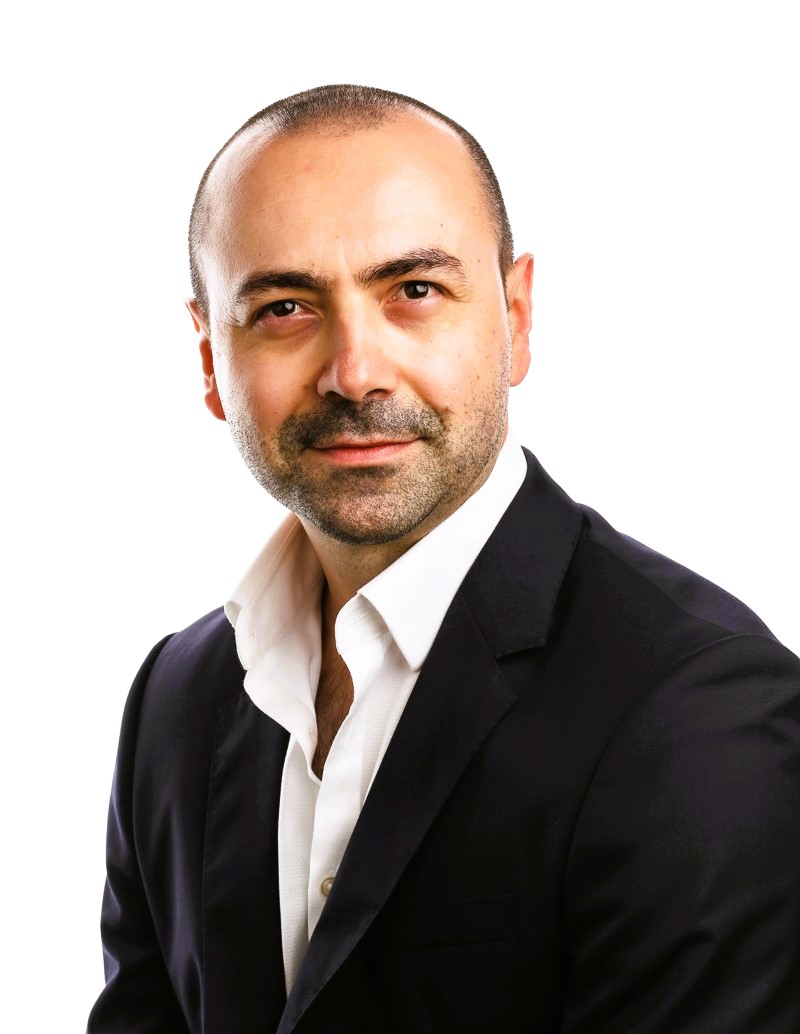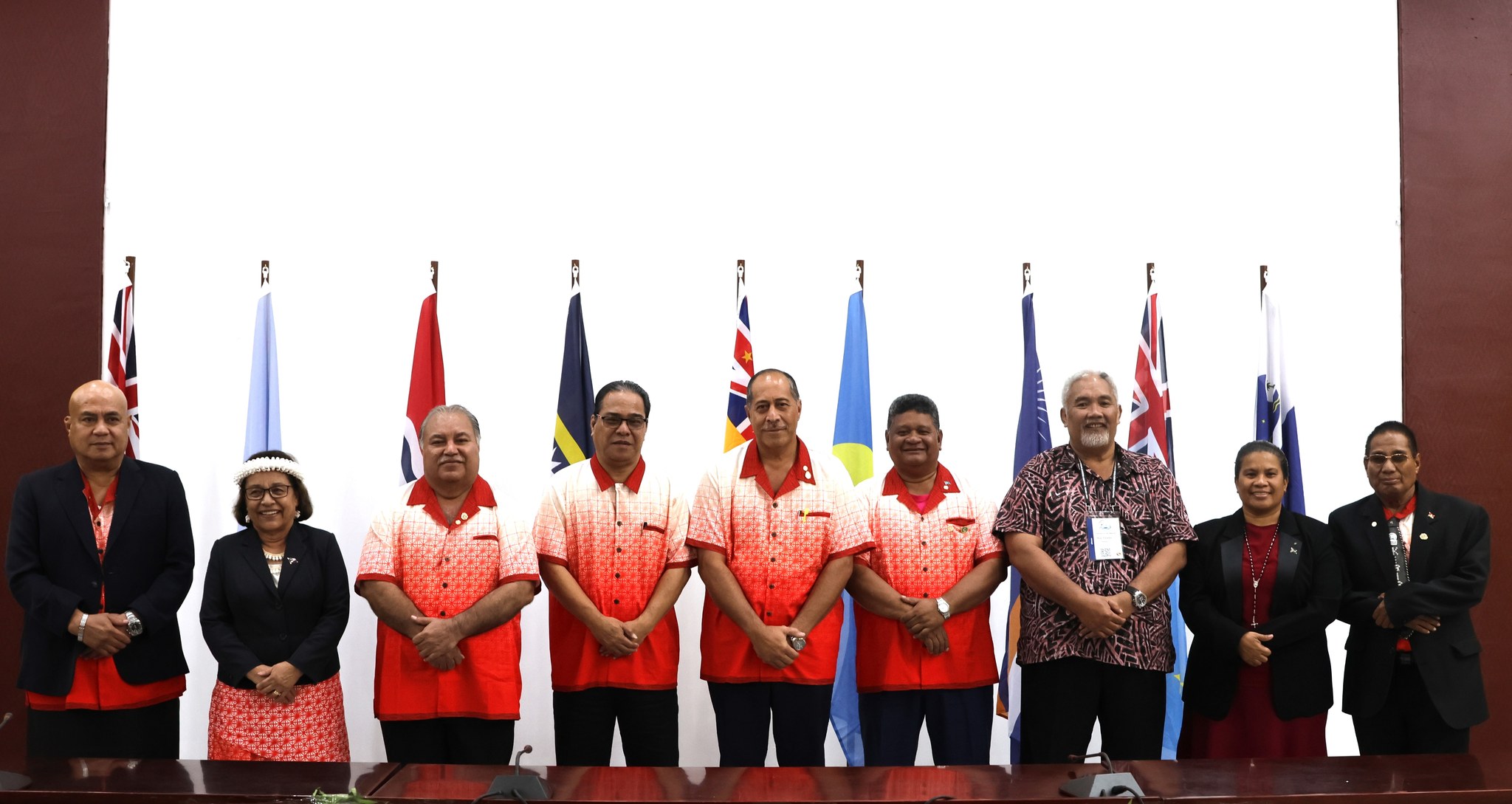From Climate to Crime: Pacific Leaders Grapple with an Era of Polycrisis
The Pacific region is grappling with a “polycrisis”. The region’s escalating threats — climate change, transnational crime, intense geopolitical competition, severe debt, and economic stress — are all converging to create a perfect storm of challenges. Picture source: Pacific Islands Forum, August 27, 2024, Facebook, https://www.facebook.com/photo/?fbid=903284668502004&set=pcb.903286598501811.
Prospects & Perspectives No. 45
From Climate to Crime: Pacific Leaders Grapple with an Era of Polycrisis
By Mihai Sora
The Pacific region is grappling with a “polycrisis,” a term aptly coined by Fiji’s Prime Minister Sitiveni Rabuka at a Pacific security conference in Suva this June. The region’s escalating threats — climate change, transnational crime, intense geopolitical competition, severe debt, and economic stress — are all converging to create a perfect storm of challenges.
These crises are not occurring in isolation: they are interlinked, compounding pressures on human security. Pacific countries’ fragile health systems are gasping under the strain of increased caseloads amid diminishing resources, education outcomes are plummeting, and mental health issues are becoming increasingly prevalent.
This week, against this tumultuous backdrop, Pacific leaders are converging in Tonga for the 53rd Pacific Islands Forum (PIF) Leaders Meeting. This annual gathering is where the region’s most pressing issues are debated and — hopefully — acted upon. But the leaders will face a crowded agenda, crammed with security, political, and economic challenges. From climate change to regional policing initiatives, and the ongoing situation in New Caledonia, the stakes are high, and the pressure is on to deliver concrete results.
Tonga: The epicenter of diplomacy
Tonga, with its modest capital of Nuku’alofa — home to just 23,000 people — will be the epicenter of Pacific diplomacy. Over 1,000 participants are expected to descend on the island, including delegations from the 18 PIF members, 21 dialogue partners, numerous observers, private sector representatives, civil society groups, and regional organizations. The influx of dignitaries will turn the international spotlight on the island nation, as it hosts discussions that could shape the region’s future.
Climate at the top of the agenda
Climate change remains the region’s most urgent security threat. In Tonga, leaders will focus on progressing the establishment and funding of the Pacific Resilience Facility (PRF), a pioneering initiative designed to build resilience to climate change and natural disasters. The PRF, which would be the first “Pacific-owned and led” regional financial institution, has ambitious goals: raising US$500 million by 2026. However, so far, the pledges have fallen well short of this target. Australia has committed US$100 million, Saudi Arabia US$50 million, with the United States, China, and Turkey offering relatively small sums between them. The PRF remains well short of its target.
Tonga, as the host, is banking on the presence of United Nations Secretary-General António Guterres to spur international partners into action. Guterres, who has been ringing the global climate alarm with increasing urgency, has promised to host a fundraising round in New York for the PRF. The hope is that his involvement will encourage deeper pockets — particularly those in Europe and the Gulf — to contribute significantly more. But, in the world of climate finance, promises often outweigh actual disbursements, and leaders in Tonga will be keenly aware of the gap between rhetoric and reality.
New Caledonia: A thorny issue
While climate change might dominate the agenda, the situation in New Caledonia will also demand attention. The French territory erupted in unrest on May 13, fueled by longstanding grievances over independence. The protests quickly spiraled into violent civil unrest, resulting in loss of life and extensive property damage in Noumea, the capital. Paris’ handling of the situation, particularly regarding New Caledonia’s political future and the outcomes of recent independence referendums, has been met with widespread criticism from regional civil society actors.
New Caledonia’s pro-independence movement has struck a chord across the Pacific, tapping into a deep-rooted sympathy for self-determination in a region where many countries only recently gained independence. However, Pacific leaders have been more circumspect, adhering to the principle of non-interference. Their statements have largely been confined to calls for an end to the violence, rather than delving into the colonial complexities at play.
On August 10, French President Emmanuel Macron gave the green light for a three-leader PIF “fact-finding mission,” comprising the prime ministers of the Cook Islands, Solomon Islands, and Fiji, to visit New Caledonia and report back to leaders in Tonga. However, disagreements between Paris and the local government in New Caledonia over the mission’s scope and nature have delayed the mission and it will not proceed in time for the Leaders Meeting. New Caledonia will undoubtedly be on the agenda, but what the PIF can realistically achieve without consensus from all relevant parties remains unclear. The issue is likely to be addressed in a similar fashion to West Papua — a perennial “standing agenda item” at Leaders Meetings that was conspicuously absent from discussions at the recent Forum Ministers Meeting in Suva.
Policing and security: A geopolitical balancing act
Another critical item on the agenda will be Australia’s A$400 million Pacific Policing Initiative. With increasingly more frequent and severe natural disasters, rising crime rates and the infiltration of transnational drug syndicates, Pacific leaders are increasingly concerned about law and order, and other regional security threats. The initiative promises to bolster policing capabilities across the region, offering additional training, capacity-building, and equipment beyond existing programs.
However, the initiative has not been without controversy. Senior Solomon Islands official Collin Beck criticized the proposal on social media, prompting a swift rebuke from Fiji’s Rabuka. Despite this, the initiative passed through the Foreign Ministers Meeting, and Tonga, as the incoming Forum Chair, will seek the Leaders’ endorsement — with the caveat that further national consultations will be needed.
Australia views the initiative as a vital counterbalance to China’s growing influence in regional security. Beijing’s ambition to provide police training to Pacific countries has heightened geopolitical tensions, particularly as it runs counter to the established norm of a “Pacific-first” response to security challenges. Australia hopes that this Pacific-led policing initiative will help stabilize the regional balance of power, reinforcing PIF statements like the Boe Declaration on Regional Security with tangible action.
Managing expectations in a geopolitically charged environment
International interest in the PIF Leaders Meeting has been growing, in tandem with the increasing geopolitical competition in the Pacific. But while global powers jostle for influence, the everyday concerns of Pacific communities remain more grounded. Skyrocketing costs of living, high inflation, debt, unemployment, and strained social services are the issues most pressing for the region’s population.
Pacific communities will be looking for tangible outcomes from the meeting, and the PIF as an institution is under mounting pressure to deliver public goods. Leaders will likely focus on those issues where progress is achievable — climate change, economic recovery, and policing — rather than delving into potentially divisive or sensitive topics like New Caledonia, West Papua, or deep-sea mining. Some critics may see this as a lack of ambition, but others will argue that it is a pragmatic approach, given the complex and volatile nature of the issues at hand.
As the Leaders Meeting begins to unfold this week, the question remains: will the PIF be able to rise to the occasion and provide the leadership needed in a region beset by crises? Will international partners divert the focus from the Pacific’s core interests of climate, economic recovery, and security?
The stakes are high, and the world will be watching closely as Pacific leaders grapple with the challenges ahead. In this context, the success of the meeting will not be measured by grand declarations, but by the concrete steps taken to address the polycrisis facing the region. If Pacific leaders can navigate the minefield of competing interests and find common ground on key issues, they will have taken a significant step toward securing the region’s future.
(Mihai Sora, Director of the Pacific Islands Program, Lowy Institute.)


